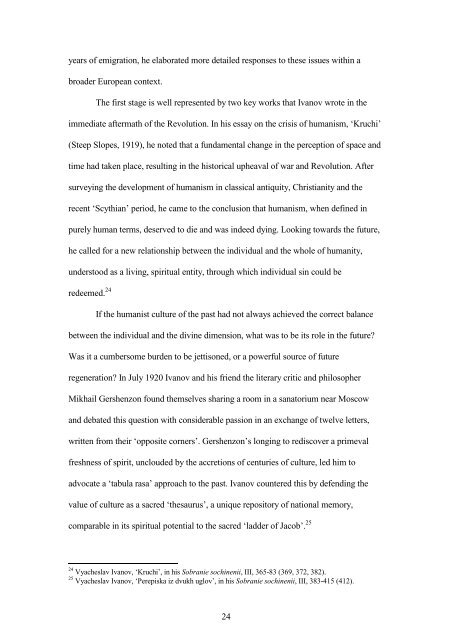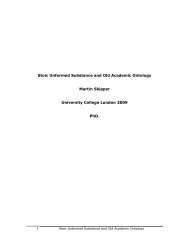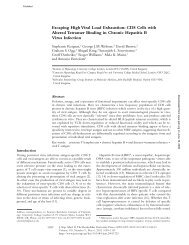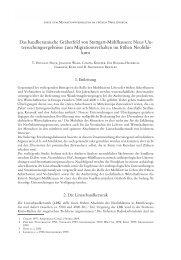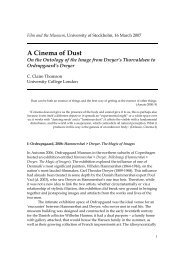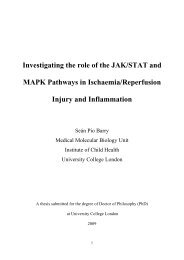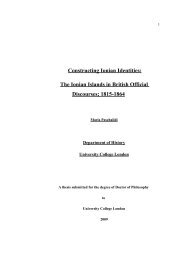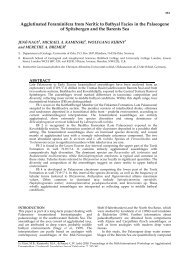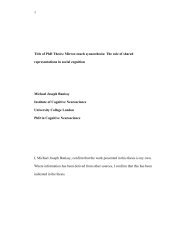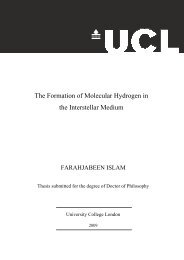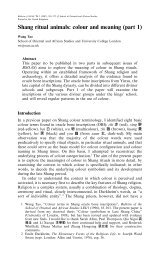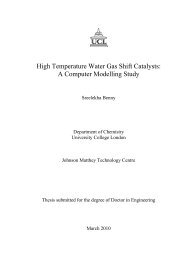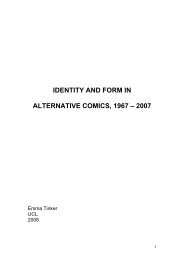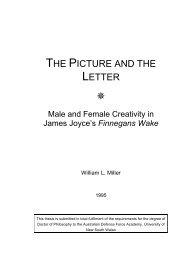Vyacheslav Ivanov and C.M. Bowra: a ... - UCL Discovery
Vyacheslav Ivanov and C.M. Bowra: a ... - UCL Discovery
Vyacheslav Ivanov and C.M. Bowra: a ... - UCL Discovery
Create successful ePaper yourself
Turn your PDF publications into a flip-book with our unique Google optimized e-Paper software.
years of emigration, he elaborated more detailed responses to these issues within a<br />
broader European context.<br />
The first stage is well represented by two key works that <strong>Ivanov</strong> wrote in the<br />
immediate aftermath of the Revolution. In his essay on the crisis of humanism, ‘Kruchi’<br />
(Steep Slopes, 1919), he noted that a fundamental change in the perception of space <strong>and</strong><br />
time had taken place, resulting in the historical upheaval of war <strong>and</strong> Revolution. After<br />
surveying the development of humanism in classical antiquity, Christianity <strong>and</strong> the<br />
recent ‘Scythian’ period, he came to the conclusion that humanism, when defined in<br />
purely human terms, deserved to die <strong>and</strong> was indeed dying. Looking towards the future,<br />
he called for a new relationship between the individual <strong>and</strong> the whole of humanity,<br />
understood as a living, spiritual entity, through which individual sin could be<br />
redeemed. 24<br />
If the humanist culture of the past had not always achieved the correct balance<br />
between the individual <strong>and</strong> the divine dimension, what was to be its role in the future?<br />
Was it a cumbersome burden to be jettisoned, or a powerful source of future<br />
regeneration? In July 1920 <strong>Ivanov</strong> <strong>and</strong> his friend the literary critic <strong>and</strong> philosopher<br />
Mikhail Gershenzon found themselves sharing a room in a sanatorium near Moscow<br />
<strong>and</strong> debated this question with considerable passion in an exchange of twelve letters,<br />
written from their ‘opposite corners’. Gershenzon’s longing to rediscover a primeval<br />
freshness of spirit, unclouded by the accretions of centuries of culture, led him to<br />
advocate a ‘tabula rasa’ approach to the past. <strong>Ivanov</strong> countered this by defending the<br />
value of culture as a sacred ‘thesaurus’, a unique repository of national memory,<br />
comparable in its spiritual potential to the sacred ‘ladder of Jacob’. 25<br />
24 <strong>Vyacheslav</strong> <strong>Ivanov</strong>, ‘Kruchi’, in his Sobranie sochinenii, III, 365-83 (369, 372, 382).<br />
25 <strong>Vyacheslav</strong> <strong>Ivanov</strong>, ‘Perepiska iz dvukh uglov’, in his Sobranie sochinenii, III, 383-415 (412).<br />
24


